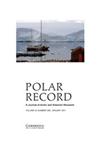经济、领土与认同:加拿大与挪威原住民自决的洛克卡尼式分析
IF 1.6
4区 环境科学与生态学
Q3 ECOLOGY
引用次数: 2
摘要
整个北极圈北部的土著人民在通过更大的政治自治确保自决方面取得了重大进展。尽管这种改变很重要,但必须伴随着旨在减少国家依赖的更大经济控制。本文使用挪威政治学家Stein Rokkan开发的分析框架,探讨了加拿大因纽特人和挪威Sámi人之间的经济、领土和身份之间的相互作用。报告显示,这两个群体的经济命运受到国内和国际因素的深刻影响,这些因素决定了他们所从事的经济发展的重点和类型。因纽特人追求以区域自治模式为基础的现代和传统经济发展形式的平衡,Sámi人选择了强调传统经济活动的经济发展模式,并得到挪威对土著人民权利的国际承诺的支持。本文章由计算机程序翻译,如有差异,请以英文原文为准。
Economy, territory, and identity: A Rokkanian analysis of Indigenous self-determination in Canada and Norway
Abstract Indigenous peoples throughout the circumpolar north have made significant progress in terms of securing self-determination through greater political autonomy. Although such change is important, it must be accompanied by greater economic control aimed at reducing state dependencies. Using an analytical framework developed by Norwegian political scientist, Stein Rokkan, this article explores the interplay between economy, territory, and identity among the Inuit in Canada and the Sámi in Norway. It reveals that the economic destinies of both groups have been profoundly influenced by both domestic and international factors that determine the focus and type of economic development they undertake. While the Inuit have pursued a balance of modern and traditional forms of economic development that is grounded in a regionally based model of self-rule, the Sámi have opted for an economic development model that emphasises traditional economic activities and is supported by Norway’s international commitments to the rights of Indigenous peoples.
求助全文
通过发布文献求助,成功后即可免费获取论文全文。
去求助
来源期刊

Polar Record
环境科学-环境科学
CiteScore
1.40
自引率
25.00%
发文量
26
审稿时长
>36 weeks
期刊介绍:
Polar Record is an international, peer-reviewed scholarly periodical publishing results from a wide range of polar research areas. The journal covers original primary research papers in the humanities, social sciences, physical sciences, life sciences, and polar technology, as well as papers concerning current political, economic, legal, and environmental issues in the Arctic or Antarctic. Polar Record endeavours to provide rapid publication, normally within nine months of initial submission.
 求助内容:
求助内容: 应助结果提醒方式:
应助结果提醒方式:


